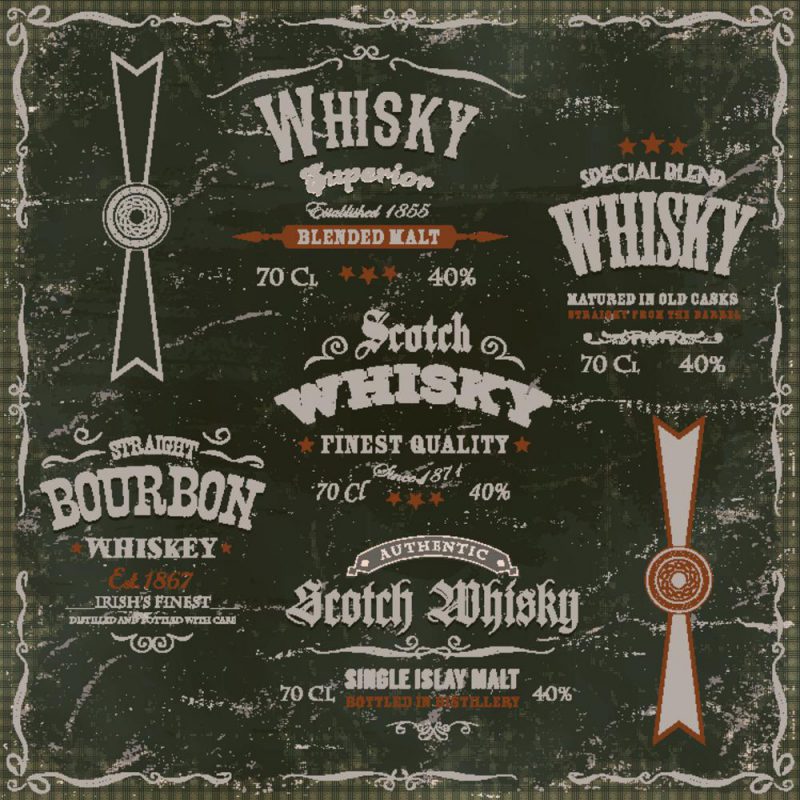Whiskey
Whiskey – A Tidbit of History
Bourbon, Whiskey and Scotch! This is just a tidbit of a history lesson from your favorite liquor store Kansas City! Where to begin? Let’s start with the spelling! There is always confusion on the spelling of either whiskey or whisky. The way we explain it is that if the country of origination has an “e” in its name i.e. United States or Ireland, the spelling is whiskey or whiskeys, otherwise its whisky or whiskies (i.e. countries like Scotland, Japan and Canada).
On another note, people often ask about the differences between scotch and whiskey. They are in fact very similar. The primary difference is location, as well as a few ingredients and of course spellings. If you didnt already know, scotch is actually whisky that is made in Scotland and bourbon on the other hand is whiskey that is made in the United States. Scotch is primarily made of malted barley and bourbon is alcohol made of corn that has been distilled.
The age-old question just like the chicken and the egg is which came first! If you check with the Scotch Whisky Association, Scotch was the originator with the earliest records going back to 1494. Regardless of the originator, the best liquor store Kansas City loves them all!
Bourbon, Whiskey and Scotch Facts Through History
100 AD – Although it cannot be 100% confirmed, the argument is that distillation was originally founded in 2000 BC in Mesopotamia, which is recognized as regions of Iraq and Syria today. The first documented records of distillation were written about in 100 AD by the Greek philosopher Alexander of Aphrodisias. The writings describe the process of taking water from the sea and distilling it so that sea water could be purified for drinking water.
500 – 1000 AD – Through time the art of distillation was used in Europe as well as with the Moors and the Christian religion. At this time the process was used to make concoctions for ceremonies as well as medicine for ailments like smallpox.
1000-1200 AD – Whisky originated when monks brought the process from Europe to Scotland and Ireland. The monasteries in Scotland and Ireland did not have grape vineyards so they began fermenting grain mash, which resulted in the first distillations of whisky.
1536 – 1541 – Whisky production moved to the general public in an effort by King Henry VIII to dissolve monasteries. With this, many monks began to look for new ways to make their living in distillation.
1600 – The practice of making whisky was brought to America by European colonists. Immigrants from both Scotland and Ireland that settled in the new territories began distilling different types of grains and mash.
1608 – In Northern Ireland, The Old Bushmills Distillery became licensed and is the oldest licensed distillery of whiskey distillery in the world.
1725 – The English Malt Tax of 1725 threatened production of whisky and forced many Scottish distilleries to go underground with producing whisky at night. This underground movement sparked a new nickname for whisky “moonshine.”
1783 – Evan Williams of Louisville Kentucky founded the first commercial distillery on the banks of the Ohio River.
1820 – John Walker, at the time a Scottish grocer, created his own brand of whisky. Johnnie Walker is one of the most distributed brands of Scotch whisky in the world.
1823 – Dr. James C Crow developed the sour mash process, at what is known as the Woodford Reserve Distillery, in Kentucky. The process helped to create batch consistency which has helped to revolutionize how bourbon is made. Not to mention that this process is a requirement for anyone producing Tennessee Whiskey.
1840 – In 1840 Jacob Spears was the first maker to label his product as “Bourbon whiskey”
1850 – Blended whiskey was produced by Andrew Usher. Usher mixed pot still whiskey with a batch of whiskey made in a Coffey still. He was the first person to produce and market blended scotch.
1920 – 1933 – All alcohol was banned during the era of American Prohibition. The only exception was that a doctor could prescribe whiskey for medical purposes which had to be sold by a licensed pharmacy. Walgreens grew from 20 stores to almost 400 stores over the span of 13 years of the prohibition.
1964 – Congress declared that bourbon whiskey was the official distilled spirit of the country. Regulations were set that defined when whiskey could be labeled as bourbon.
Today – There are so many options to choose from today when it comes to whiskey. Whether you have a taste for the smooth and mellow, sweet or even spicy! We suggest that you expand your palate and try different expressions from your favorite brand as well as new brands that you have never tried. You never know when you will find your new favorite. Enjoy!
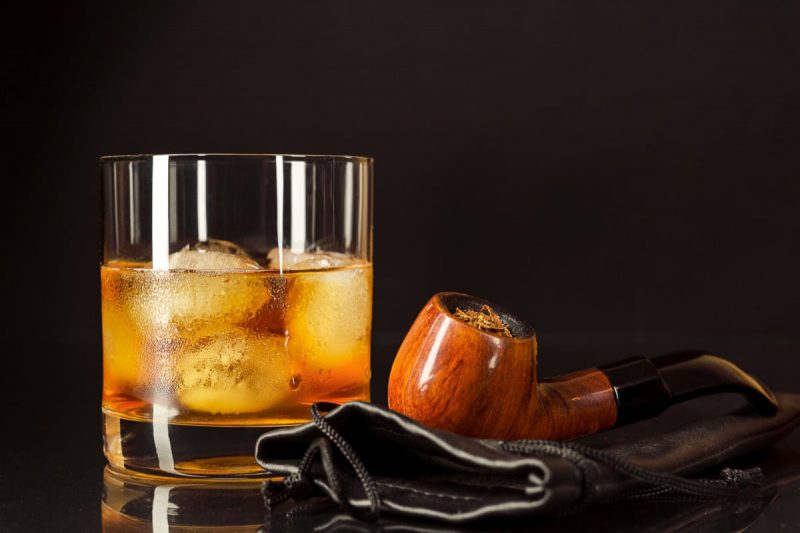
Bourbon
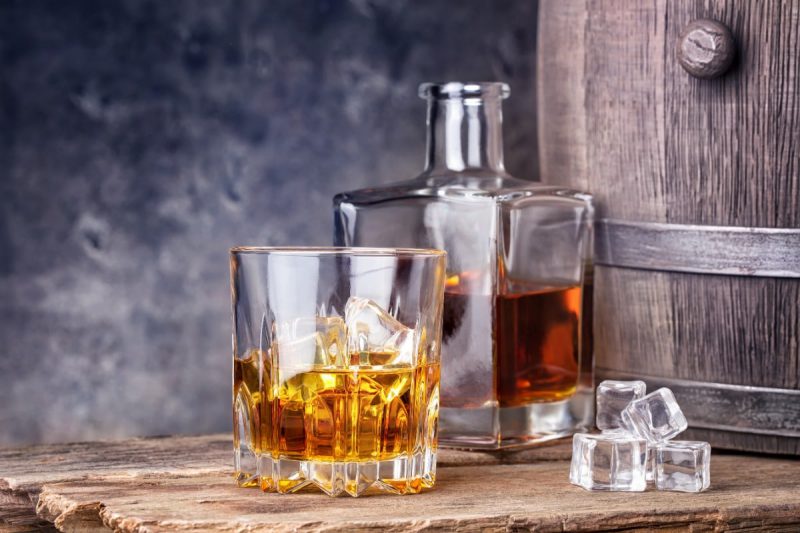
Whisky
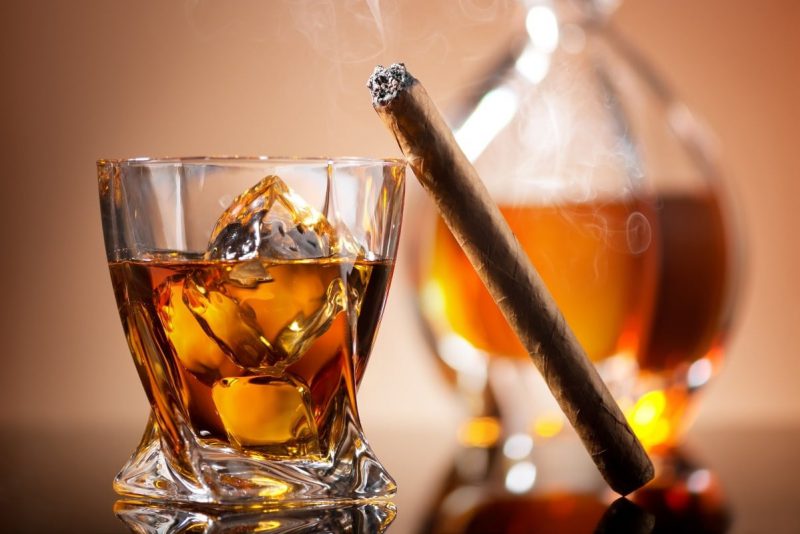
Scotch
The Birth of Whiskey
For the Whiskey connoisseur, I’m sure it will not surprise you that the term originally comes from the Gaelic word visage beatha, which means “water of life”. Seems like such a fitting description for those of us that love the smooth complex taste of whiskey. It was also known in Latin as aqua vitae.
Distilling was brought to Ireland and Scotland by the monks of Europe between 1100 and 1300. Although whiskey was originally used for medicinal purposes, it has since developed into a drink to enjoy with friends and family.
During the Revolutionary war, whiskey was often used as a form of currency. Immigrant farmers, native to Scotland and Ireland, in Pennsylvania, rose up in anger when a federal tax law was created on whiskey by Alexander Hamilton. The uprising was subdued by the government under the orders of President George Washington. Ironically, some say that Whisky is partially to blame for the creation of the IRS (Internal Revenue Service).
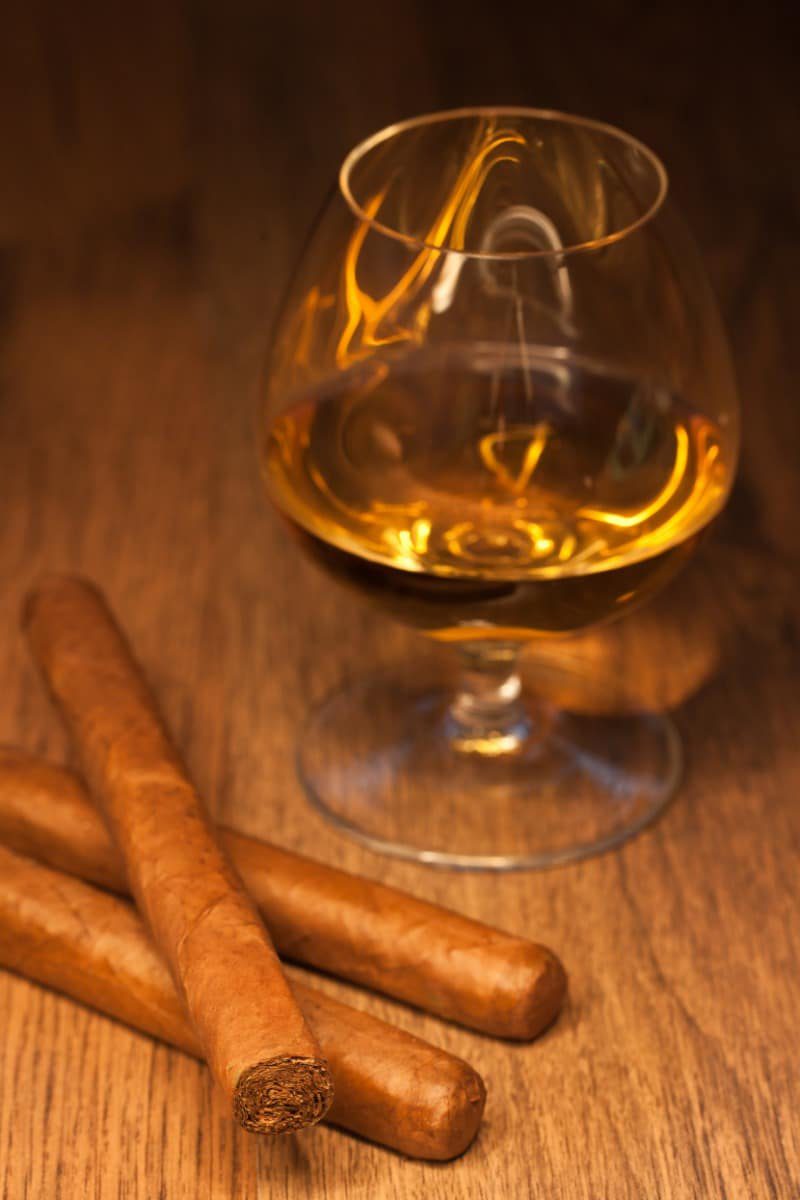
Liquor Store Kansas City – Whiskey Terms for Enthusiasts
- ABV means alcohol by volume, which is a measurement of the strength, based on alcohol content.
- Angel’s Share refers to the amount of evaporation from whiskey barrels annually. This is an odd term, but your friends might be impressed.
- Beer is the beginning creation stage for whiskey. All whiskey starts out as a type of beer and is then turned into whiskey during the process.
- Blend refers to whiskey that has a mixture of different malts from multiple different distilleries. An example of a blended whiskey is Johnnie Walker.
- Cask Strength refers to how whiskey has been bottled i.e. straight from the cask which has a higher ABV. Other whiskeys not bottled from the cask are diluted prior to bottling.
- Charring is the process of the barrel, a whiskey is maturing in, having been burned or fired. The level of firing is done based on the flavor profile that is being sought. Firing is used in the process of creating bourbon in order to achieve a sweet vanilla flavor profile.
- Chill Filtration is the process in which the temperature of whiskey is lowered to -10 and 4 degrees. The whiskey is then filtered to remove or reduce residue and cloudiness.
- Congeners – is the chemical compounds that are responsible for the essence of whiskey. Congeners are formed during the process of fermentation.
- Nosing – is the ability to smell a whiskey to determine its flavor profile.
- Palate – is when you taste whiskey to determine its flavor profile.
- Peat – is used in the process of creating whiskey and is formed with dead plants and mashed together with water. Peat is essential to dry out malted grains.
- When peat is used in the whiskey process it is referred to as peated.
- Worm Tub – is a long snake-like pipe used in the whiskey process and is where vapors from alcohol are condensed.
- Wort – is the liquid from the mash tun, which is full of sugars, waiting to be fermented.
Whiskey Scoring
Scoring whiskey is really about your own personal likes and dislikes. While there are many different scores that are applied by the experts, there is no one governing that says a whisky needs to be a certain color hue that ranges from X to X or that the flavor must primarily X, Y and Z to have a top rating of 90 to 100. What really matters is whether you, the person drinking the whiskey, likes it or not. You are the judge and jury. The ratings that you find are just personal reviewers giving their opinion, nothing more.
We recommend having some fun with your fellow whiskey lovers and having your own rating party! Raising the Bar Liquors carries some of what we consider to be the best whiskeys and we love being social! Come on by and talk to our experts at the best liquor store Kansas City if you need a recommendation on something new to try!

